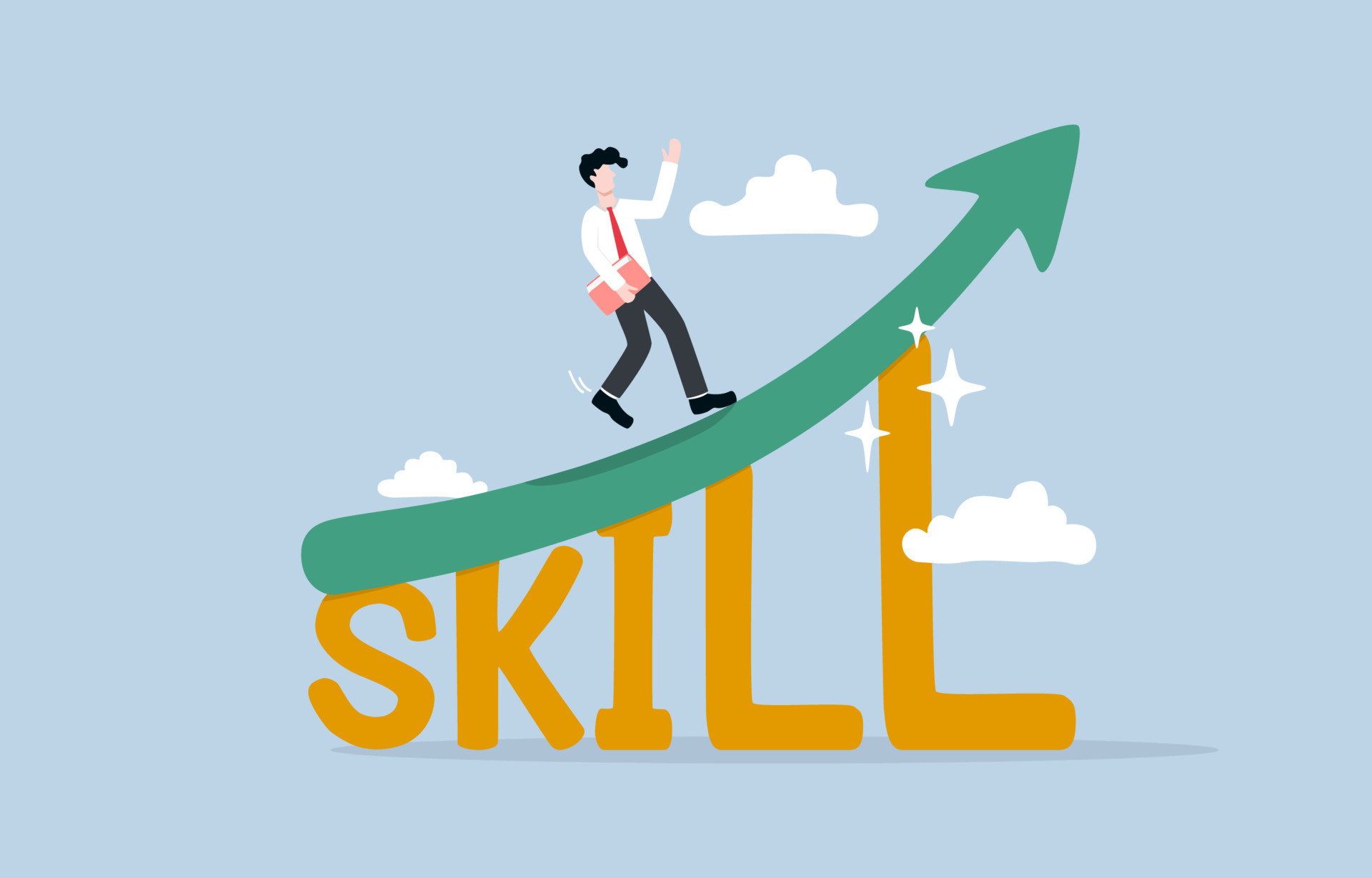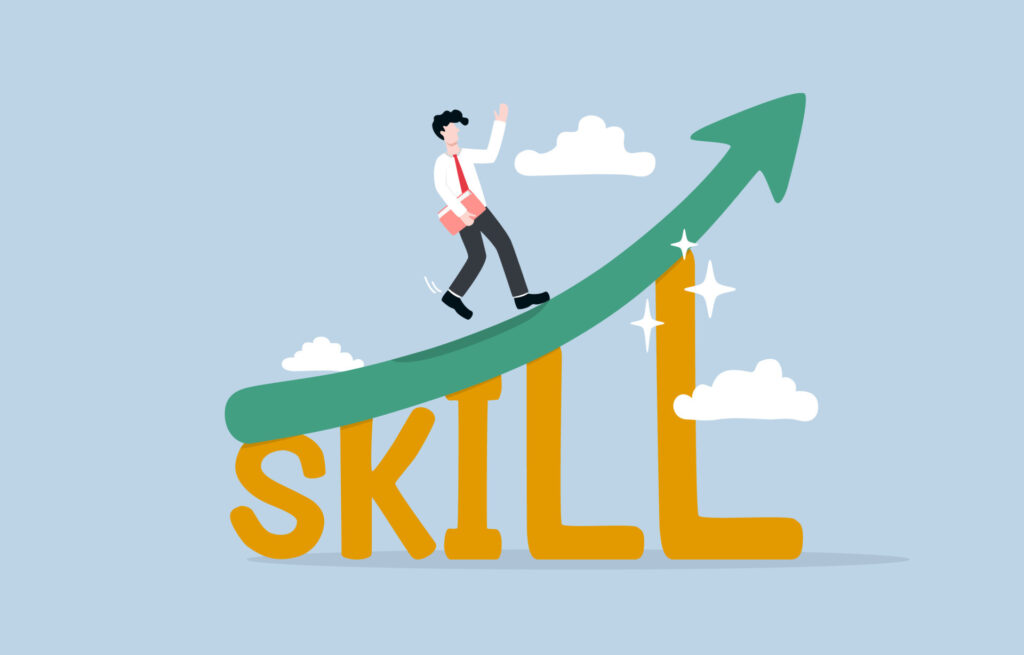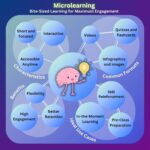My Growth Journey: How Embracing Skill Development Changed Everything
Have you ever felt like you’re standing still while the world around you speeds up? Like everyone else is getting ahead, learning cool new things, and you’re just… stuck? I know that feeling all too well. There was a time, not so long ago, when I felt exactly that way. My job felt a bit stale, my personal life lacked a certain spark, and honestly, I just wasn’t sure what my next move should be.
This isn’t some fancy, high-tech story. It’s about a simple, powerful idea that slowly, steadily, started to turn things around for me: skill development. It’s not about being a genius or having a secret talent. It’s about deciding to learn, to grow, and to just try.
The Moment It Clicked: Realizing I Needed to Grow
I remember the day vividly. I was scrolling through job postings, not really looking for anything specific, just feeling a bit restless. Every exciting role I saw seemed to require skills I didn’t have – things like advanced data analysis, compelling public speaking, or a deeper understanding of digital marketing. My existing abilities felt… adequate, but not exciting. Not future-proof.
It wasn’t a sudden flash of lightning, but more like a quiet realization: if I wanted different results, I needed to do different things. And that meant learning new skills. It sounded daunting at first. Where do you even begin? I wasn’t in school anymore. My days were already packed. But the feeling of being left behind was stronger than the fear of starting.
My First Steps: Small Starts, Big Impact
I didn’t jump into coding or rocket science right away. My first step was much simpler: I looked at my current job and asked myself, "What’s one thing that would make my work a little easier, or help me contribute more?" For me, it was improving my communication skills, especially when presenting ideas. I also wanted to get better at managing my time, because, let’s be honest, that’s a skill everyone can use!
Here’s how I started my personal skill development journey:
- Picked One Small Skill: I didn’t try to learn everything at once. I chose to focus on improving my presentation skills.
- Found Accessible Resources: I didn’t enroll in an expensive course. I started with free online videos, articles, and even just observing colleagues who were great presenters. I borrowed a book from the library on effective communication.
- Practiced, Even Imperfectly: This was the hardest part. I’d rehearse in front of a mirror, record myself, and even volunteer for small presentations at work, even if my knees were shaking. The first few times were rough, but each time, I learned something.
- Asked for Feedback: After a presentation, I’d ask a trusted colleague, "What could I do better next time?" Their honest feedback was gold.
It wasn’t glamorous. There were moments of frustration, moments where I felt silly, and moments where I wanted to give up. But something amazing started to happen: I felt a tiny bit more confident. And that little boost of confidence made me want to try again.
The Core Principles I Learned Along the Way
As I continued on my path of continuous learning and personal growth, I realized that skill development isn’t just about picking up new tools. It’s about adopting a certain mindset. Here are some principles that truly made a difference for me:
1. Consistency Beats Intensity, Every Time
You don’t need to spend eight hours a day learning. Ten minutes of focused practice daily is far more effective than trying to cram everything into one weekend. It’s like tending a garden: small, consistent efforts yield beautiful results. I learned that showing up, even when I didn’t feel like it, was the real secret. This is key for professional development and any kind of self-improvement.
2. Embrace Mistakes as Your Best Teachers
I used to dread making errors. Now, I see them as signposts. Every time I messed up a presentation, or misunderstood a concept, it showed me exactly where I needed to focus my effort next. Don’t be afraid to fail; be afraid of not trying. This mindset shift is crucial for anyone looking to upskill or reskill.
3. Find Your "Why"
Why do you want to learn this skill? Is it for a promotion? To start a new hobby? To feel more confident? When the going gets tough, remembering your core motivation will keep you going. My "why" was to feel capable and to open up new opportunities for myself. It’s about more than just a certificate; it’s about unlocking potential.
4. Practice, Practice, Practice – Then Apply
Learning is one thing; doing is another. You can read all the books on swimming, but you won’t learn until you get in the water. Once you’ve learned a new concept, find ways to apply it in your daily life or work. This helps cement the skill in your mind and shows you its real-world value. This practical application is vital for true skill mastery.
5. Seek Feedback and Don’t Be Afraid to Ask for Help
No one grows in a vacuum. I learned to actively seek out constructive criticism from people I trusted. It wasn’t always easy to hear, but it was always helpful. And if I was stuck on something, I learned to ask for help – from colleagues, mentors, or online communities. There are so many people willing to share their knowledge.
6. Celebrate Small Victories
Did you understand a concept you’ve been struggling with? Give yourself a pat on the back! Did you use your new skill successfully, even in a small way? Acknowledge it! These small celebrations build momentum and keep you motivated on your learning journey.
7. The World is Always Changing – And So Should You
What was relevant yesterday might not be tomorrow. The most valuable skill I’ve developed is the ability to learn how to learn. It means being curious, adaptable, and open to new information. This constant adaptation is what makes lifelong learning so powerful.
The Payoff: New Doors, New Confidence
Slowly, almost imperceptibly at first, things started to shift. My presentations at work became smoother, more engaging. My time management improved, reducing my stress levels. Because I was actively working on myself, I started to feel more engaged, more vibrant.
Then, new opportunities started to appear. I was asked to lead a project I never would have considered before because it required strong communication. I felt confident enough to apply for a role that demanded a deeper understanding of data, a skill I’d been quietly working on. I didn’t get every opportunity, but the fact that I was even considered was a huge win. My career advancement felt real.
Beyond work, my personal development spilled over into other areas. I started a new hobby I’d always wanted to try. I felt more confident in social situations. The feeling of being "stuck" melted away, replaced by a sense of purpose and excitement about what I could learn next.
Your Journey Starts Now: Don’t Wait
If you’re reading this and feeling that familiar tug of wanting more, of wanting to grow, please know that you can start right now. You don’t need a big budget or endless free time. You just need a little bit of curiosity and the willingness to take a small, consistent step.
- Identify: What’s one skill that would make a difference for you? It could be anything: public speaking, basic coding, understanding personal finance, creative writing, cooking, learning a new language.
- Research: Where can you learn about it? Free online tutorials, library books, podcasts, community workshops, or even just talking to someone who already has that skill.
- Start Small: Dedicate 15-30 minutes a few times a week. Don’t overwhelm yourself.
- Be Patient: Growth isn’t instant. It’s a marathon, not a sprint. Celebrate the small wins.
Skill development isn’t just about getting a better job or making more money (though those can certainly be wonderful side effects!). It’s about becoming a more capable, confident, and resilient person. It’s about staying curious and open to the incredible possibilities that life offers.
It’s a beautiful, ongoing adventure. And yours is just waiting to begin. What will you learn first?



